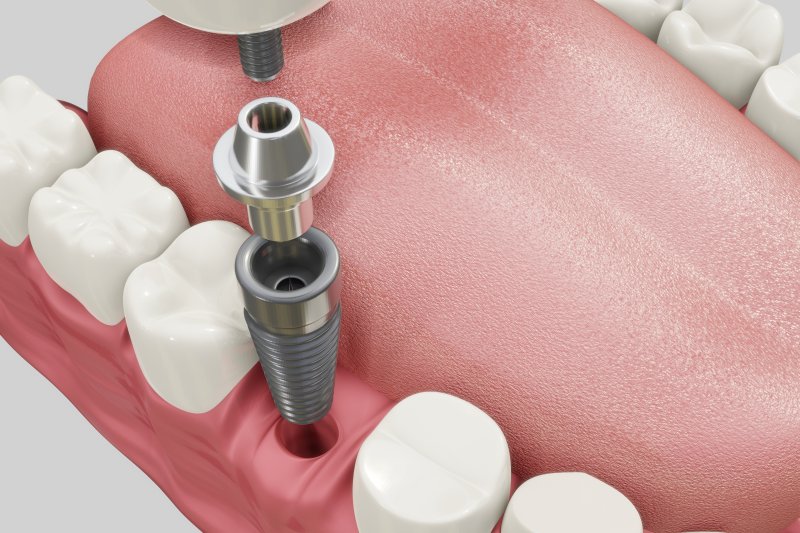
Dental implants will no doubt catch your eye once you start looking for potential tooth replacements. After all, not only are they sturdier and longer lasting than traditional dentures, but they also stop bone loss from occurring in your jaw. But for all the benefits that dental implants offer, it’s important to realize that the process of receiving them isn’t so simple. Some procedures are more complex than others, and it’s vital for dentists to be able to adapt to these complications before they replace your missing teeth. Here are 3 potential complications that might arise when you get implants – as well as what can be done about them.
1. Loss of Bone
It’s natural for your jaw to experience some bone loss once you’ve already lost some of your teeth. In other cases, the bone might simply have weakened due to your age or an unrelated medical condition. In any event, a weakened jaw may not be able to properly join with and support dental implant posts. The good news is that lost bone density can be restored. Your dentist would simply need to arrange for you to undergo a bone graft procedure. This would involve taking healthy bone tissue (generally taken from elsewhere in your body) and applying it to the jaw in strategic areas. After a few months, there should be a solid foundation for the implants themselves, and the surgery can move forward at that point.
2. Extensive Tooth Loss
How many missing teeth do you have? If you’ve simply lost one tooth, the implant procedure will be relatively simple; you’ll only need one post. But if several are gone, your dentist will have to put a bit of consideration into how many implants are necessary. Should each tooth be replaced with an individual implant? Could you get two implants in order to support a bridge? Or will you need four to six implants in strategic locations for full dentures? The procedure will be different for each patient depending on their needs.
3. Medical Conditions
Any form of gum disease – whether it’s mild gingivitis or severe periodontitis – can cause dental implants to fail. Such infections will have to be treated before the surgery is scheduled. Also, certain health issues such as diabetes might affect your mouth’s ability to heal properly, so that will have to be taken into account before moving forward.
Remember that the success rate of implant surgery is approximately 95 percent; that’s because skilled dentists always take every precaution to make sure the procedure goes as smoothly as possible, even if the case isn’t straightforward. Don’t be afraid to schedule a consultation to find out if dental implants are right for you.
About the Author
Dr. Michael C. Byars takes advantage of the latest advancements in modern technology to bring his patients high quality, truly comfortable care. He studied dental implants during a one-year residency program called The Advanced Education in General Dentistry Residency. If you have been thinking about getting implants but aren’t sure you’re a candidate, get in touch with Dr. Byars at his Kansas City practice through his website or by calling (816) 781-8222.

